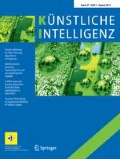Abstract
The need to achieve sustainability is driving a major transformation of the energy sector. The traditional top-down approach to electricity supply and grid management is being strongly disrupted by a range of forces including distributed renewables, retail market liberalization, and the need for energy consumers to adapt their behavior to the availability of renewable energy sources. We introduce Power TAC, a competitive simulation that challenges researchers to build autonomous trading agents that tackle the complex decision processes a retailer will need to face in future competitive retail electricity markets.



Similar content being viewed by others
Notes
See www.powertac.org.
Details available at http://powertac.org.
References
Albadi M, El-Saadany E (2008) A summary of demand response in electricity markets. Electr Power Syst Res 78(11):1989–1996
Bichler M, Gupta A, Ketter W (2010) Research commentary: designing smart markets. Inf Syst Res 21(4):688–699
Broad D, Christansen K, Dragoon K, Lee K, Spielman K, Parkinson S (2012) Smart end-use energy storage and integration of renewable energy (technical report). Ecofys US, Corvallis
Collins J, Ketter W, Gini M (2009) Flexible decision control in an autonomous trading agent. Electr Commer Res Appl 8(2):91–105
Cottrell F (2009) Energy and society: the relation between energy, social change, and economic development. AuthorHouse
Fahrioglu M, Alvarado F (2000) Designing incentive compatible contracts for effective demand management. IEEE Trans Power Syst 15(4):1255–1260
Gottwalt S, Ketter W, Block C, Collins J, Weinhardt C (2011) Demand side management: a simulation of household behavior under variable prices. Energy Policy 39:8163–8174
Jordan PR, Kiekintveld C, Wellman MP (2007) Empirical game-theoretic analysis of the TAC supply chain game. In: Proceedings of the 6th international joint conference on autonomous agents and multiagent systems, AAMAS ’07, ACM, New York, NY, USA, pp 193:1–193:8
Joskow P (2008) Lessons learned from electricity market liberalization. Energy J 29(2):9–42
Joskow P, Tirole J (2006) Retail electricity competition. Rand J Econ 37(4):799–815
Kahlen M, Valogianni K, Ketter W, van Dalen J (2012) A profitable business model for electric vehicle fleet owners. In: Proceedings of 2012 international conference on smart grid technology, economics and policies (SG-TEP), pp 1–5
Ketter W, Collins J, Reddy P (2013) Power TAC: a competitive economic simulation of the smart grid. Energy Econ 39:262–270
Ketter W, Collins J, Reddy PP, Weerdt MD (2014) The 2014 power trading agent competition. SSRN Scholarly Paper ID 2411847, Social Science Research Network, Rochester, NY, USA
Ketter W, Peters M, Collins J (2013) Autonomous agents in future energy markets: the 2012 power trading agent competition. Bellevue, Washington
Ketter W, Symeonidis A (2012) Competitive benchmarking: lessons learned from the trading agent competition. AI Mag 33(2):1–3
Kind P (2013) Disruptive challenges: financial implications and strategic responses to a changing retail electric business
MacKay DJ (2009) Sustainable energy: without the hot air, 1st edn. UIT Cambridge Ltd, Cambridge
Peters M, Ketter W, Saar-Tsechansky M, Collins J (2013) A reinforcement learning approach to autonomous decision-making in smart electricity markets. Mach Learn 92(1):5–39
Pudjianto D, Ramsay C, Strbac G (2007) Virtual power plant and system integration of distributed energy resources. IET Renew Power Gener 1(1):10
Ramchurn S, Vytelingum P, Rogers A, Jennings N (2012) Putting the “Smarts” into the smart grid: a grand challenge for artificial intelligence. Commun ACM 55(4):86–97
Reddy PP, Veloso MM (2012) Factored models for multiscale decision-making in smart grid customers. In: Proceedings of the Twenty-Sixth AAAI conference on artificial intelligence (AAAI-12)
Siano P (2014) Demand response and smart grids: a survey. Renew Sustain Energy Rev 30:461–478
Skytte K (1999) The regulating power market on the nordic power exchange nord pool: an econometric analysis. Energy Econ 21(4):295–308
Sovacool BK, Watts C (2009) Going completely renewable: is it possible (let alone desirable)? Electr J 22(4):95–111
Sun J, Tesfatsion L (2007) Dynamic testing of wholesale power market designs: an open-source agent-based framework. Comput Econ 30(3):291–327
Tesfatsion L (2002) Agent-based computational economics: growing economies from the bottom up. Artif Life 8(1):55–82
Tomic J, Kempton W (2007) Using fleets of electric-drive vehicles for grid support. J Power Sour 168(2):459–468
Vasirani M, Ossowski S (2013) Smart consumer load balancing: state of the art and an empirical evaluation in the Spanish electricity market. Artif Intell Rev 39(1):81–95
Vytelingum P, Voice TD, Ramchurn SD, Rogers A, Jennings NR (2010) Agent-based micro-storage management for the smart grid. In: Proceedings of 9th international conference on autonomous agents and multi agent systems, Toronto, pp 10–14
de Weerdt M, Ketter W, Collins J (2011) A theoretical analysis of pricing mechanisms and broker’s decisions for real-time balancing in sustainable regional electricity markets. In: Proceedings of conference on information systems and technology, Charlotte, pp 1–17
Weidlich A, Veit D (2008) A critical survey of agent-based wholesale electricity market models. Energy Econ 30(4):1728–1759
Author information
Authors and Affiliations
Corresponding author
Rights and permissions
About this article
Cite this article
Collins, J., Ketter, W. Smart Grid Challenges for Electricity Retailers. Künstl Intell 28, 191–198 (2014). https://doi.org/10.1007/s13218-014-0311-6
Published:
Issue Date:
DOI: https://doi.org/10.1007/s13218-014-0311-6




